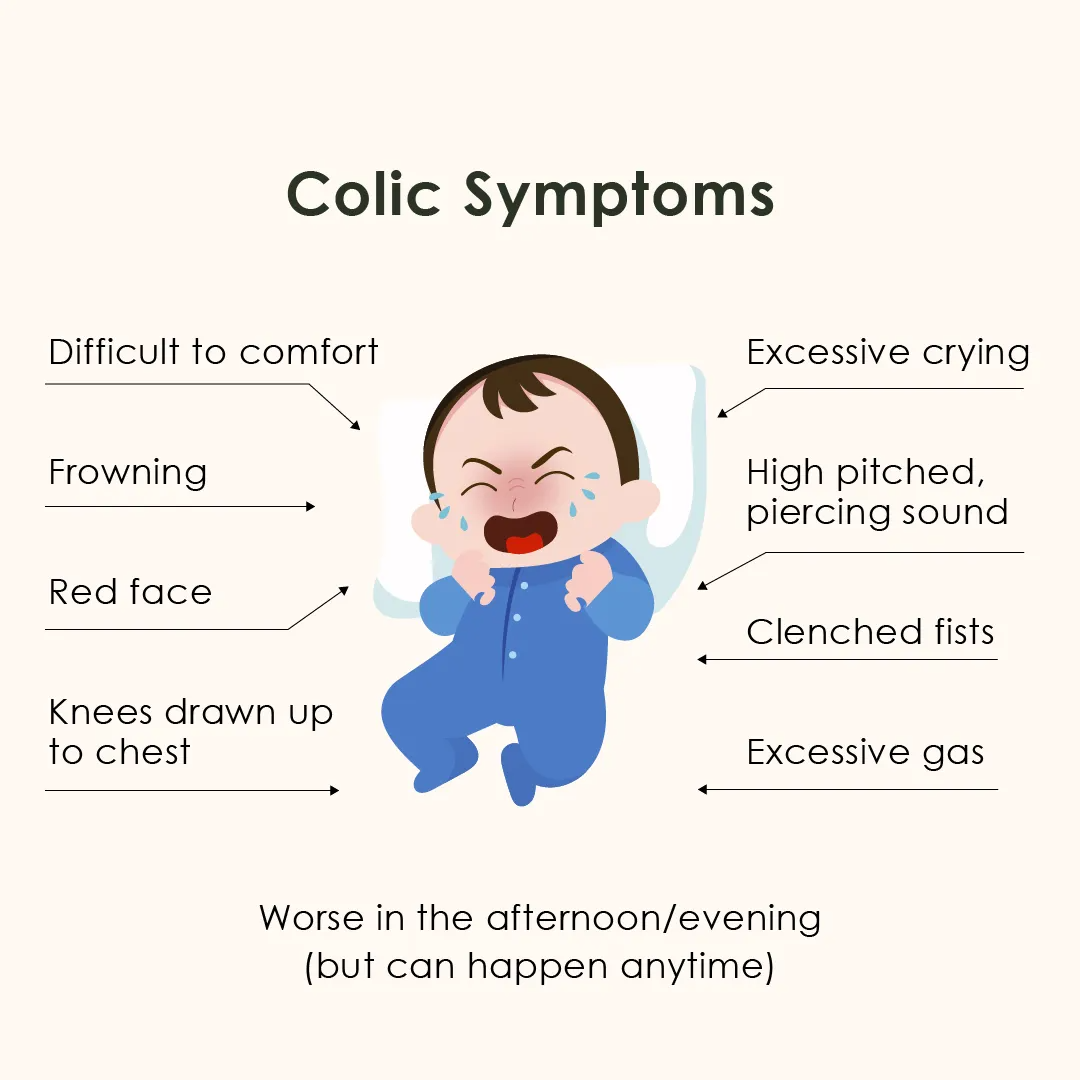Navigating the early stages of parenthood comes with its fair share of joys and challenges, and if there’s one challenge that often takes the crown, it’s managing colic in babies. Colic can be an unsettling experience, not just for babies, but for parents too. It’s characterized by episodes of inconsolable crying in an otherwise healthy and well-fed infant. If you’re a new parent seeking advice on how to prevent colic in babies, this blog aims to guide you through understanding colic and sharing practical steps to potentially prevent or ease this condition.
Understanding Colic
Before diving into prevention strategies, it’s crucial to know what colic is. Colic is not a disease or an indication of something serious. It’s a pattern of prolonged crying, often occurring in the late afternoon or evening, in babies who are otherwise healthy. The cause of colic remains a subject of much research, but it’s commonly associated with the digestive system adjusting to feeding.
Preventing Colic in Babies
While there’s no guaranteed way to prevent colic, there are strategies you can implement that may reduce the likelihood or severity of colic episodes:
- Feeding Techniques: Ensure your baby is latching on properly during breastfeeding, as improper latching can lead to swallowed air, which contributes to discomfort. If you’re bottle-feeding, consider anti-colic bottles designed to reduce air intake.
- Dietary Considerations: Breastfeeding mothers might consider limiting spicy foods, caffeine, and dairy. Some studies suggest that certain foods in a mother’s diet could contribute to infant colic.
- Probiotics: Some research indicates that probiotics, particularly Lactobacillus reuteri, may help improve gut health and reduce colic symptoms in breastfed babies.
- Burping Regularly: Make it a habit to burp your baby during and after feedings to help release any trapped air in their stomach.
- Soothing Techniques: Establish a routine that includes swaddling, gentle rocking, and soothing sounds. These can mimic the environment of the womb and help to calm your baby.
- Limit Overstimulation: Overstimulation can be overwhelming for infants, leading to excessive crying. Create a calm environment, especially towards the evening.
- Using Anti-Colic Bottles: Bottles like those from BabyPippin are specifically designed to prevent colic by minimizing the amount of air a baby takes in while feeding. Such anti-colic bottles have proven to work for many parents and can be a valuable part of your colic-prevention toolkit.
- Regular Check-ups: Keep up with pediatrician visits to monitor your baby’s growth and health, ensuring that any possible medical issues are addressed promptly.
- Parental Care: Take care of your own well-being. A calm and rested parent is better equipped to soothe a colicky baby.
Final Thoughts
Colic can be a trying experience, but with patience and some tried-and-true strategies, you can ease your baby’s discomfort. Remember, each baby is unique, and what works for one may not work for another. Keep a log of your baby’s crying patterns and any interventions that seem to help or exacerbate the issue, and discuss these with your pediatrician.
Colic typically resolves on its own by the time your baby is around 3-4 months old. Until then, know that you’re not alone, and support is available. Communities of parents, pediatricians, and lactation consultants can be invaluable resources during this time. Stay informed, stay patient, and maintain hope. Your baby will get through this period, and so will you.



